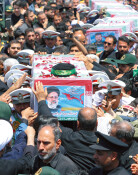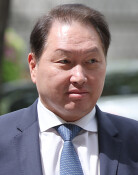Fingerprinting and Natl Security
To enter the U.S. or Japan, a person needs to join a long line at an airport in either country to get a passport assessment, take a portrait photo, and get fingerprinted. Though this inconvenient procedure takes a long time, nobody is complaining. This is because the intent is to prevent terrorism and other crimes. France and Australia also use this system, and Britain and Canada will adopt it soon.
In Korea, a proposed revision to immigration law seeks to require foreigners to get fingerprinted and have their portrait photos taken when entering the country. The revision, however, has languished at the National Assembly. The government sent the revision to parliament in November last year. A standing committee has put the revision on the back burner, however, saying it should be dealt with other similar bills together. The extra parliamentary session for February ended, so the revision should be handled in the next extra session in April.
Passport assessment has its limits in screening out people who could commit crimes or enter the country with forged passports. Fears over terrorism are also rising around the world. The U.S. and Britain have been major terrorism targets of Islamic extremists. Korea is also no longer immune from terrorism. Korean troops will go to Afghanistan in July and Seoul will host the Group of 20 summit in November, an event that will bring together the leaders of the worlds top 20 economies. This will make the country a potential target for terrorism.
Over the last five years, 10,772 foreigners were caught using forged passports to enter and leave Korea. One Pakistani man recently arrested allegedly traveled to Korea 17 times with a fake passport. He is suspected of having ties to the terrorist group Taliban. This shows Koreas lax security system. With more than one million expatriates living in Korea, thousands of such foreigners reportedly belong to organized crime rings. In this vulnerable security situation, managing the personal information of foreigners by taking their portraits and fingerprinting them is the least authorities can do to help prevent terrorism.
Violent extremism seeking to claim the lives of innocent civilians for political, religious and ideological reasons is called a borderless war. In this sense, prevention of terrorism should be seen as a national security issue that goes beyond protecting the peoples lives. What if terrorists plot an attack on world leaders at the G20 summit in Seoul? The Korean government should do everything it can do to prevent terrorism in the country. The National Assembly must also closely cooperate with the government in this effort by promptly passing the revision bill to immigration law.







